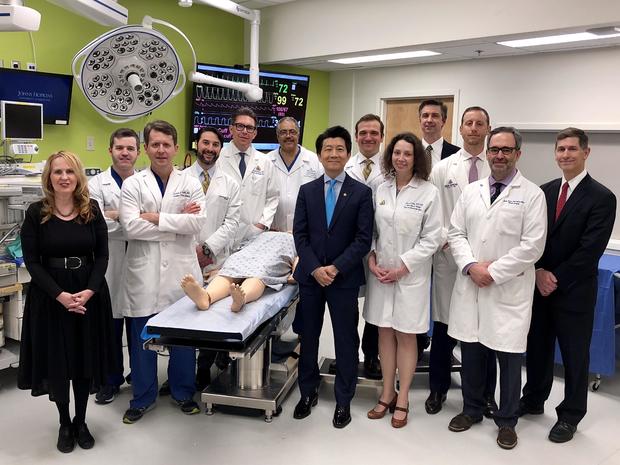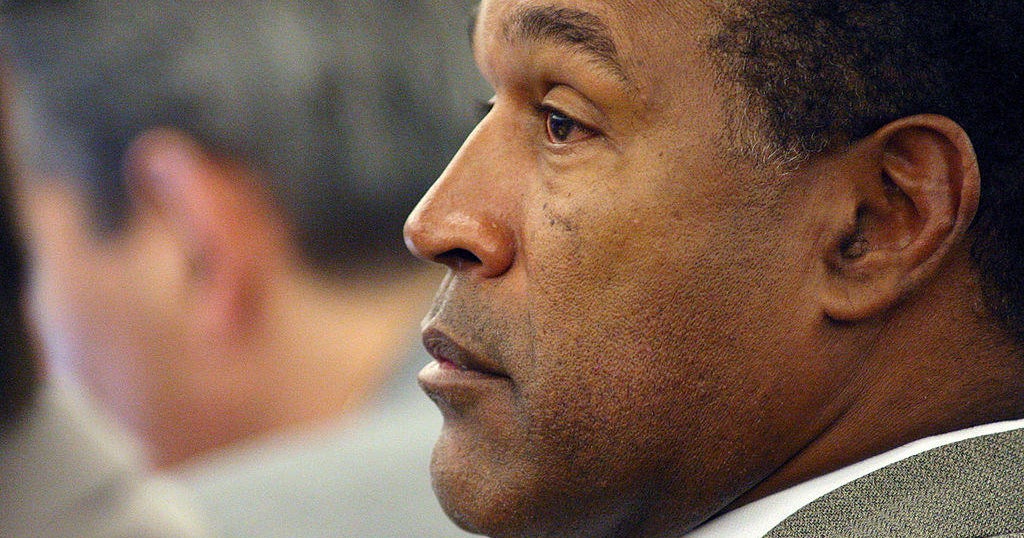Veteran who survived blast receives "world's most extensive" penis, scrotum transplant
A U.S. veteran who lost his genitals from a blast in Afghanistan has received the world's most extensive penis transplant. Doctors said Monday he is recovering well and expected to leave the hospital this week.
Saying they wanted to address "an unspoken injury of war," Johns Hopkins University surgeons rebuilt the man's entire pelvic region — transplanting a penis, scrotum and part of the abdominal wall from a deceased donor — in a highly experimental 14-hour operation last month.
Such transplants "can help those warriors with missing genitalia just as hand and arm transplant transformed the lives of amputees," Dr. W.P. Andrew Lee, Hopkins' chairman of plastic and reconstructive surgery, told reporters Monday.
The patient, who asked to remain anonymous, is expected to recover urinary and, eventually, sexual function.
"It's a real mind-boggling injury to suffer, it is not an easy one to accept," the patient said in a statement released by Johns Hopkins. "When I first woke up [after the transplant], I felt finally more normal."
The scrotum transplant did not include the donor's testicles, meaning reproduction won't be possible. "We just felt there were too many unanswered ethical questions" with that extra step, said Hopkins' Dr. Damon Cooney.
A team of nine plastic surgeons and two urological surgeons took part in the operation on March 26.
Three other successful penis transplants have been reported, two in South Africa and one in 2016 at Massachusetts General Hospital. Those transplants involved only the penis, not extensive surrounding tissue that made this transplant much more complex.
The loss of a penis, whether from cancer, accident or war injury, is emotionally traumatic, affecting urination, sexual intimacy and the ability to conceive a child. Many patients suffer in silence because of the stigma their injuries sometimes carry.
Doctors sometimes reconstruct the form of a penis from a patient's own skin, usually to treat congenital abnormalities or during transgender surgery. That requires using implants to achieve erection.
For a functional penis transplant, surgeons must connect tiny nerves and blood vessels. Candidates face some serious risks, including rejection of the tissue and side effects from anti-rejection drugs that must be taken for life.
"What that means is they become potentially more susceptible to infections, so he'll have to be concerned about those things. Unfortunately, immunosuppressive therapy can also lead to cancers. There'll be monitoring of him for the rest of his life," Dr. David Cangello, a board certified plastic surgeon, explained on CBSN.
But penis transplants have generated intense interest among veterans from Iraq and Afghanistan, and a few years ago Hopkins surgeons began planning and rehearsing how to perform such a complex operation in patients with widespread tissue damage. The Department of Defense Trauma Registry has recorded 1,367 male service members who survived with genitourinary injuries between 2001 and 2013. It's not clear how many victims lost all or part of the penis.
Hopkins is screening additional veterans to see if they are good candidates for this type of reconstructive transplant. Finding donors is an additional hurdle: In the U.S., people or their families who agree to donate organs such as the heart or lung must be asked separately about also donating a penis, hand, face or other body part.
The Hopkins patient received an extra experimental step, an infusion of bone marrow from his donor that research suggests may help a recipient's immune system better tolerate a transplant. Surgeons said that is enabling the veteran to take one anti-rejection drug instead of several.
The first successful penis transplant was performed on a 21-year-old man in South Africa in December 2014, although doctors did not report it publicly until three months later. The hospital said the patient regained all urinary, reproductive and sexual functions with his new penis.
The first such operation in the U.S. transplanted an organ from a deceased donor to a 64-year-old penile cancer survivor, Thomas Manning of Halifax, Massachusetts. Manning issued a statement following the operation saying: "Today I begin a new chapter filled with personal hope and hope for others who have suffered genital injuries."
In an interview the following week, Manning told The Associated Press he never hesitated about going public with his ordeal.
"The bottom line is you can't worry about what other people think. You've got to get on with your life," he said. "I happen to be the first person to receive a penis transplant. What's the big deal?"
Watch more of Manning's story below:




